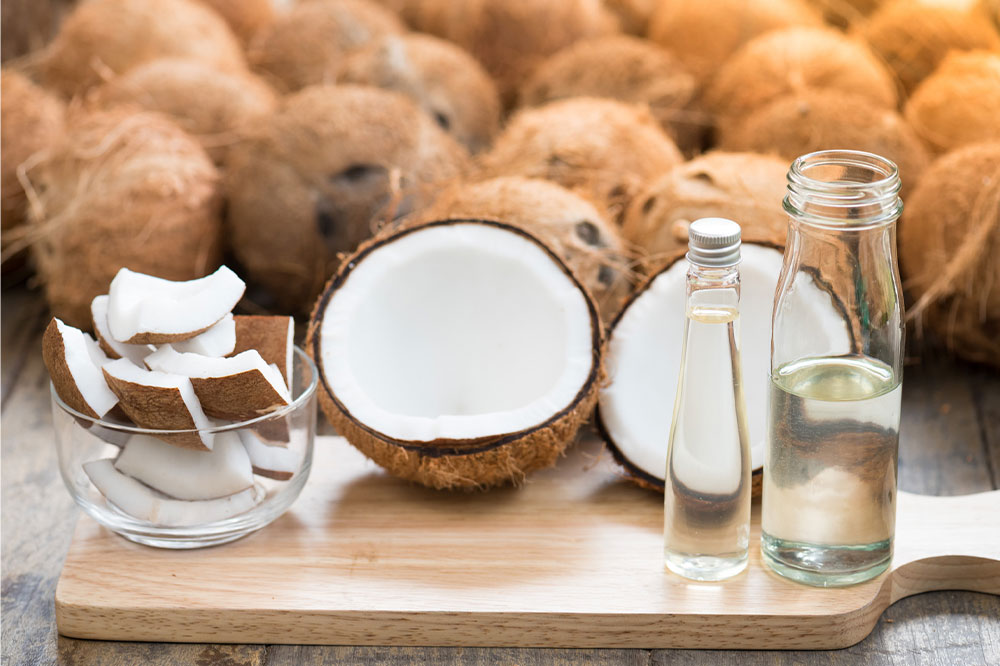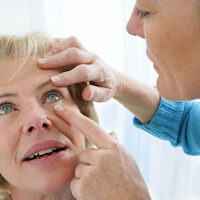Fight Eczema With the Help of These 10 Remedies

Living with eczema can be challenging and overwhelming. The skin affected by eczema is delicate and should be treated with utmost care. Since there is no specific cause for this disease, one cannot easily determine what triggers the symptoms. For most patients, it is a trial-and-error way to understand their allergies. Treatments and certain natural foods and remedies can help patients improve their overall condition. Some natural remedies that help manage eczema are listed below.
Taking an oatmeal bath
An oatmeal bath can have outstanding results for people of all age groups. Since it is an external treatment, you do not have to spend much on buying supplements. To prepare an oatmeal bath, one has to grind grounded oat grains into small quantities to test whether your skin is allergic to them. Once you have tried it successfully, you can grind more oat grains and store them for future use. A simple blender is enough to grind. Adding a spoonful of oat grain powder to your bath water will keep your skin moisturized and prevent dryness. Dryness is the first and most common symptom of eczema. An oatmeal bath taken occasionally keeps your skin moisturized for more extended periods.
Using primrose oil
Primrose oil is made from the evening primrose plant’s seeds and contains gamma-linolenic acid. This acid acts as an anti-allergen and anti-inflammatory remedy. Common symptoms of eczema usually include rashes, dry patches of skin, swollen patches, redness, and raised spots. Regularly applying primrose oil over the affected area can help reduce itching and other allergies by preventing foreign particles from entering the skin.
Using fewer chemicals on your skin
Some chemicals and skincare products must be avoided while dealing with skin disorders such as eczema. One of the main reasons behind eczema flare-ups is the use of incompatible chemicals and skincare products on their skin. For normal skin, where the cell arrangement is joint on the surface level, skin products do not easily break the barrier and enter the skin. However, for eczema-affected skin, the arrangement of the cell membrane isn’t rigid; hence, anything that might trigger an immune response will flare up the symptoms. Avoiding chemicals like retinoids, lanolin, ethanol, and glycol becomes crucial. These are found in regular skin products.
Moisturizing the skin
Moisturizing the skin often is necessary to keep away dryness. Dry skin is one of the primary symptoms that eczema patients experience. Extreme dryness can be an early indicator of this chronic disorder. A moisturizer product recommended by health experts can help your skin retain moisture. Constant moisturizing can reduce itching and rashes even if your skin is affected by eczema. Some natural elements like honey can also be used as a moisturizer. There are also a variety of other harmless and gentle moisturizers with fewer chemicals that can keep your skin hydrated.
Applying coconut oil over the skin
Just like honey, coconut oil can also prevent dryness. Besides that, coconut oil has antibacterial and anti-inflammatory properties that can prevent microbes from entering your skin. It will also help to reduce the inflammation caused by itching. Applying coconut oil to the affected areas will prevent the flaking and cracking of the skin. Even if a patient experiences bleeding, applying coconut oil over the affected area can keep the scar uninfected.
Avoiding extreme temperatures
Exposure to extreme temperatures constantly dries up the moisture in your skin and makes it rigid. It can be one of the leading causes of eczema. People exposed to cold temperatures for extended periods get eczema compared to those in warmer climates. Similarly, scorching temperatures are also not favorable for people with eczema. Sweltering temperatures and exposure to extreme heat reduce the water level in your body due to dehydration. It may result in reduced moisture levels in the skin. If your skin starts drying outdoors, it is time to moisturize and avoid extreme temperatures.
Opt for cotton clothes
Cotton clothes absorb your sweat, keep your body relaxed, and do not allow as much dust to enter the skin. Wearing clothes made of fabrics like polyester, nylon, linen, and poly-blend materials can trap the heat and dry up your skin even more. If you have eczema symptoms, wearing these fabrics will keep your sweat inside the body and create an itching sensation. Going for 100% cotton clothing can lessen the intensity of the condition.
Use tea tree oil
Tea tree oil is extracted from the leaves of tea trees. One can use them directly or opt for alternatives such as tea tree oil creams. It contains the terpinen-4-ol compound, which is an antioxidant. Antioxidants are generally prescribed for people with eczema to reduce skin inflammation. This antioxidant is a crucial ingredient in tea tree oil and is more effective than zinc. Using tea tree oil or related products daily will calm the inflammation and prevent further infections from occurring and spreading over the body.
Taking some time off and relaxing
Extreme stress can also be a trigger for eczema. Nervousness and anxiety can lead to restlessness and eventually trigger symptoms like itching and scratching. In case you are already affected by eczema, stress can be a significant factor contributing to the severity of the disease. Meditating can be a great way to manage stress. One can also try walking around and taking frequent breaks from work to avoid scratching the skin.
Get a massage
A non-irritant oil or moisturizer massage can be relaxing for a person suffering from eczema. The skin affected by eczema might be filled with rashes, flakes, and blisters. A massage can improve blood circulation in certain areas of your skin or even throughout the body if you get a body massage. Depending on the eczema infection, one can choose a skin-friendly moisturizer for the massage. However, ensure your massage therapist is aware of your condition, as it will help them treat you properly and suggest suitable options.





